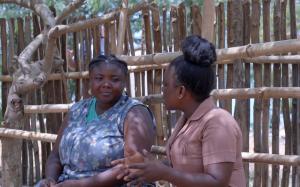Strengthening Epidemic Preparedness and Response: Building Resilience After Ghana’s 2023 Floods
In 2023, Ghana faced a major disaster when the spillage of excess water from the Akosombo Dam led to devastating floods in the Eastern, Volta, and Greater Accra Regions. The increased water flow in the Volta River inundated low-lying areas along its course, severely impacting communities such as Mepe, Battor, Sogakope, Mafi, Adidome, and Ada. Entire neighborhoods were submerged, forcing thousands to flee their homes and leaving a trail of destruction to lives, livelihoods, and infrastructure.
The disaster exposed critical gaps in emergency preparedness, especially at the district level. While the Volta River Authority had an emergency plan, the affected districts lacked comprehensive contingency plans, and the health response focused narrowly on epidemic-prone diseases instead of adopting an all-hazards approach. The health risks were compounded by stagnant waters, poor sanitation, and displacement, which heightened the potential for outbreaks of cholera, malaria, and other diseases.
Amid this dire situation, the World Health Organization (WHO), with funding from UK in Ghana, partnered with the Ghana Health Service (GHS) to strengthen epidemic preparedness and response in the hardest-hit areas.
To mitigate the health risks posed by the floods, the WHO facilitated the training of over 700 community-based surveillance volunteers. These volunteers, selected from local communities, were equipped to detect disease outbreaks, report cases promptly, and assist in conducting investigations, creating a vital first line of defense against epidemics.
Famous Awusagba, a volunteer from Kwahu East District, shared how the training changed his perspective, "Before this training, I didn’t know how to identify or respond to health crises. Now, I can detect diseases early and report them to health authorities, helping to prevent outbreaks in my community. It’s an honor to contribute in this way."
Similarly, in Atsiekpoe, a community at the Volta River’s overbank in the North Tongu District, Lawrencia Amebley, a community health nurse, recounted her experience. She said, "The training has been transformative. I’ve been able to identify and report cases of tuberculosis and acute flaccid paralysis early. This ensures timely care for patients and prevents the spread of diseases. It’s deeply fulfilling to see the impact of my work."
Beyond training, WHO supported all 51 districts in the Eastern and Volta Regions to develop robust public health emergency contingency plans. These plans incorporated principles of multi-sectoral, the all-hazards approach, One Health, and the commitment to leaving no one behind.
Dr. Mutala Mohammed, the Kwahu East District Health Director, emphasized the significance of these efforts. He said, "The floods exposed the vulnerabilities in our systems, but with WHO’s support, we’ve developed a contingency plan that ensures we are better prepared for future emergencies. This plan has given us the tools and confidence to protect our communities effectively."
The Eastern Regional Director of Ghana Health Service, Dr. Winfred K. Ofosu highlighted the broader impact, "The flooding brought unimaginable challenges, but it also united us to find lasting solutions. This partnership with WHO and UK in Ghana has strengthened our preparedness and response systems, turning a crisis into an opportunity to build resilience."
Infectious Hazard Management Officer for WHO Ghana, Patrick Avevor, commended the collective efforts. He said, "The 2023 floods were a stark reminder of the need for preparedness. With funding from UK in Ghana, we’ve been able to empower communities, strengthen health systems, and enhance coordination across sectors. This collaboration embodies our shared commitment to leaving no one behind."
For communities like Mepe, Battor, Sogakope, and Ada, the floods were a test of endurance and resilience. Thanks to WHO’s intervention, supported by UK in Ghana, these areas now have the capacity to detect, respond to, and mitigate health emergencies more effectively.
What began as a disaster has evolved into a story of hope and progress, illustrating the power of partnerships to transform crises into opportunities for building a safer, healthier future for all.
For Additional Information or to Request Interviews, Please contact:
Abdul-Lahie Abdul-Rahim Naa
Communications Officer
WHO Ghana Country Office
Email: abdullahiea [at] who.int (abdullahiea[at]who[dot]int)
Tel: +233 20 196 2393



